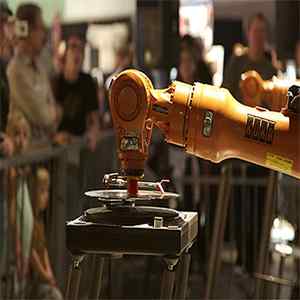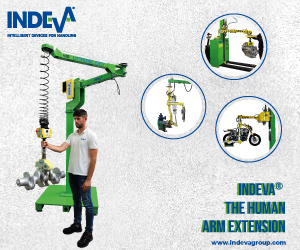Articles
A brief guide on the types of automation

Automation is the trend today, everywhere universally. It is the changing the work efficacy to a great extent and also referred to as automatic control. It is being used in factories, automobile, paper, packaging industry, etc.
There are even some processes in which they are completely automated and did you know for a fact that there are several types of automation.
Some of its advantages include:
• Increased throughput or productivity: Automation helps in enhancement of production. More amount of work can be done in less time.
• Improved robustness of processes or product: There is a consistency in work. One need not worry about the process of the work being hampered or the product turning something else or in some weird shape
• Reduces human labor costs and expenses: As everything gets automated in this technological-driven field, labor costs and expenses are reduced. Though less labor, but the output is outstanding.
Below are the types of automation available in the world of automation
Industrial Automation
Numerically Controlled Machines
Industrial Robots
Flexible Manufacturing Systems
Computer-Aided Manufacturing
1. Industrial Automation
Industrial automation, this type of automation refers to the usage of control systems like computers, robots, and information technologies (IT) for managing diverse processes and machineries in an industry in order to replace a human being.
Typical purpose controllers for industrial processes comprise Programmable logic controllers, stand-alone I/O modules, and computers.
Some of the advantages include high safety, productivity, flexibility, quality, accuracy.
2. Numerically Controlled Machines
Numerical Control Machine can be defined as the machine that is controlled by the set of instructions called as program.
It is extensively used for a variety of metal machining processes like turning, drilling, milling, shaping etc. In this, the numerical forms are the basic program instructions for diverse types of jobs
The advantages of Numerically Controlled Machines are there are greater operator safety, lower tooling costs, less chances of human error, etc.
3. Industrial Robots:
Industrial robots are changing the scenario of manufacturing industry. They are mostly used for performing tasks that are dangerous or inappropriate for human workers.
It is apt for conditions which need high output and with no errors. It is a programmable robot and can be utilized for many purposes.
Some of them include packing, palletizing, welding, material handling, assembly applications, etc and they’re sorted based on their number of axes, structure type, size of work envelope, payload capability and speed.
Few of the advantages of this type of automation are: it reduces waste, decreases production cost, increases safety, attracts more customers, etc.
4. Flexible Manufacturing Systems
A flexible manufacturing system in short referred as FMS is a way for producing goods that is readily adaptable to modifications in the product being manufactured, in which machines are capable of manufacturing parts and in the capacity to handle differing levels of production.
Some of the advantages of FMS are it reduces manufacturing cost, lowers cost per unit produced, there is a greater labor productivity, greater machine efficiency, improved quality, etc
5. Computer-Aided Manufacturing
Computer-aided manufacturing in short referred to as CAM is a type of automation which utilizes software to control machine tools and related items in the manufacturing of work pieces.
Some of the advantages are the work is done solely on the computers (so manual work is required), is faster and efficient, etc.



